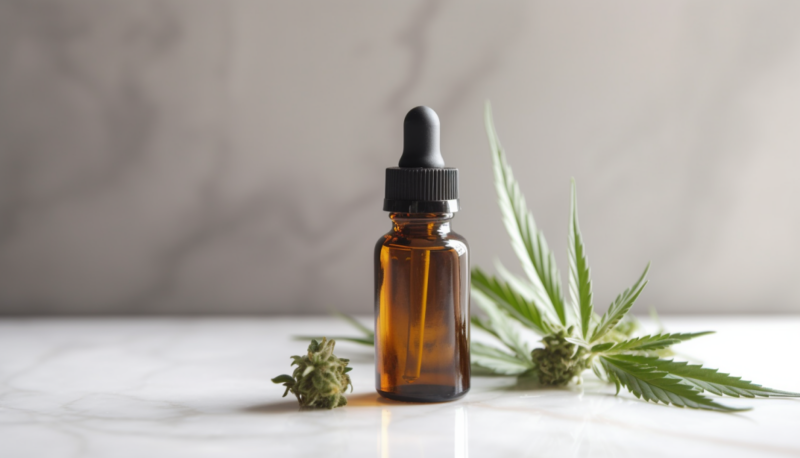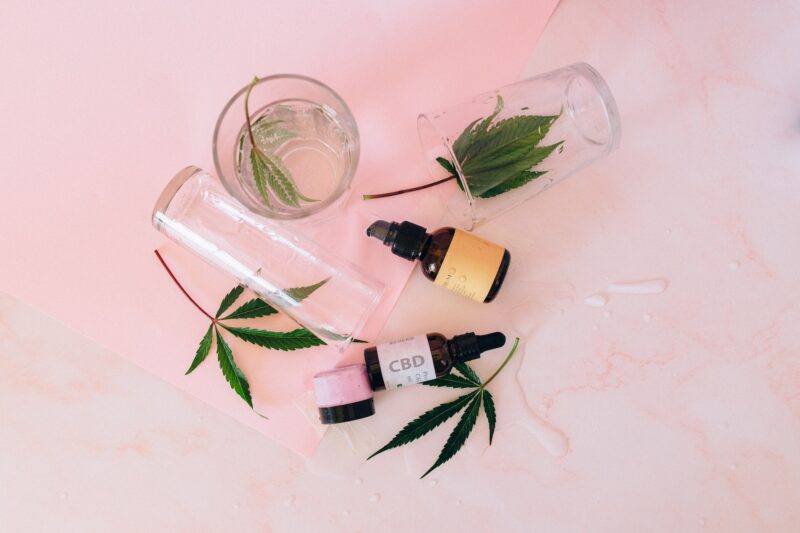CBD for Anxiety: A Practical Guide to Finding Calm

Anxiety is an all-too-common struggle faced by people around the world, and finding effective ways to manage it can sometimes feel like an uphill battle. Enter CBD, the non-intoxicating compound found in the cannabis plant, which has piqued the interest of researchers and anxiety sufferers alike. In this article, we’ll embark on a journey to explore the fascinating world of CBD and its potential role in helping individuals cope with anxiety. From understanding the basics of CBD and anxiety to examining the latest research findings, we’ll provide a comprehensive guide to this promising alternative approach to anxiety management.
What is CBD?
Before we discuss the connection between CBD and anxiety, let’s first clarify what CBD actually is. CBD, short for cannabidiol, is one of over a hundred naturally occurring compounds found in the cannabis plant. It is often mistaken for its psychoactive relative, THC (tetrahydrocannabinol), but CBD is the non-intoxicating component that has gained popularity for its potential therapeutic properties.
In contrast to THC, which can cause a “high” or altered state of consciousness, CBD doesn’t have the same mind-altering effects. This key difference has made CBD an attractive option for those seeking the potential benefits of cannabis without the psychoactive component. When it comes to its legal status, CBD derived from hemp, which contains less than 0.3% THC, is federally legal in the United States. However, it’s always a good idea to familiarize yourself with your local laws and regulations concerning CBD to make sure you’re in compliance.
Understanding Anxiety
Anxiety is a complex and multifaceted condition that comes in various forms, ranging from generalized anxiety disorder to panic disorder, social anxiety, and more. At its core, anxiety is a normal human response to stress and perceived threats, but when it becomes persistent, excessive, or starts to interfere with daily life, it can develop into an anxiety disorder. Symptoms may include excessive worry, restlessness, irritability, difficulty concentrating, and sleep disturbances, among others. Diagnosis typically involves a thorough evaluation by a mental health professional, who will consider the severity, duration, and impact of the symptoms on a person’s life.

Traditional treatments for anxiety disorders often involve a combination of therapy, such as cognitive-behavioral therapy (CBT), and medication, including antidepressants and benzodiazepines. While these treatments can be effective for many individuals, some may experience side effects or find that the treatments are not fully effective in managing their symptoms. This has led to an increasing interest in alternative approaches, including the use of CBD, as a potential tool for addressing anxiety.
How CBD May Help with Anxiety
CBD’s potential role in alleviating anxiety is a fascinating area of research. While the exact mechanisms are still being investigated, researchers believe that CBD interacts with the body’s endocannabinoid system, which plays a crucial role in regulating various physiological processes, including mood, stress response, and sleep. Additionally, CBD appears to influence serotonin receptors, particularly the 5-HT1A receptor, which is known to play a role in anxiety regulation.
These interactions suggest that CBD may have anxiolytic, or anxiety-reducing, effects. Several studies have shown promising results, with both animal and human trials indicating that CBD may help reduce anxiety symptoms in various contexts. However, it is important to note that research is still in its early stages, and more work is needed to fully understand the efficacy and safety of CBD in treating anxiety.
Nonetheless, the potential benefits of CBD in anxiety management have captured the interest of both researchers and those struggling with anxiety, opening up new avenues for treatment and further investigation.
Research Findings on CBD for Anxiety
As interest in CBD’s potential role in anxiety management has grown, so has the body of research exploring its effects. Both clinical and preclinical studies have provided valuable insights into CBD’s potential benefits for anxiety disorders. For instance, some studies have reported reduced anxiety symptoms in individuals with generalized anxiety disorder, social anxiety disorder, and even post-traumatic stress disorder. Additionally, research has shown that CBD may help alleviate anxiety-related symptoms in individuals without anxiety disorders, such as those experiencing public speaking-induced anxiety.
It’s important to acknowledge that the research on CBD and anxiety is still in its infancy, and there are limitations and challenges to consider. These may include small sample sizes, a lack of standardized dosing, and the need for long-term studies to fully understand the effects and potential side effects of CBD. Nevertheless, the existing body of research has generated a great deal of excitement and hope for CBD’s potential role in anxiety management.
How to Use CBD for Anxiety

If you’re considering using CBD to help manage anxiety, there are several factors to keep in mind. CBD comes in various forms, such as oils, tinctures, edibles, capsules, and even topicals. The choice of format depends on your personal preference, ease of use, and the desired onset of effects. For example, sublingual oils and tinctures may have a faster onset, while edibles and capsules may offer longer-lasting effects.
Determining the appropriate dosage can be tricky, as there isn’t a one-size-fits-all approach. Factors like your body weight, the severity of your symptoms, and the concentration of the CBD product can all influence the right dose for you. Starting with a low dose and gradually increasing it until you find the optimal level may be the best approach. Keep in mind that it’s always a good idea to consult with a healthcare professional before using CBD, especially if you are taking other medications, as CBD can interact with certain drugs.
Lastly, it’s crucial to be aware of potential side effects and to monitor how your body responds to CBD. While CBD is generally considered safe and well-tolerated, some individuals may experience side effects such as dizziness, dry mouth, or changes in appetite. Being mindful of these potential effects can help you make informed decisions about incorporating CBD into your anxiety management plan.
Final Thoughts on CBD for Anxiety
As we’ve seen, CBD holds considerable promise as a potential tool for managing anxiety. While research is still in its early stages, the findings so far have generated excitement and hope for those looking for alternative treatments. It’s important to remember that more research is needed to fully understand the efficacy and safety of CBD, and consulting with a healthcare professional before using CBD is always a wise decision. As we continue to learn more about CBD and its potential role in anxiety management, it may become an increasingly viable option for those seeking a more natural and holistic approach to mental health and well-being.

